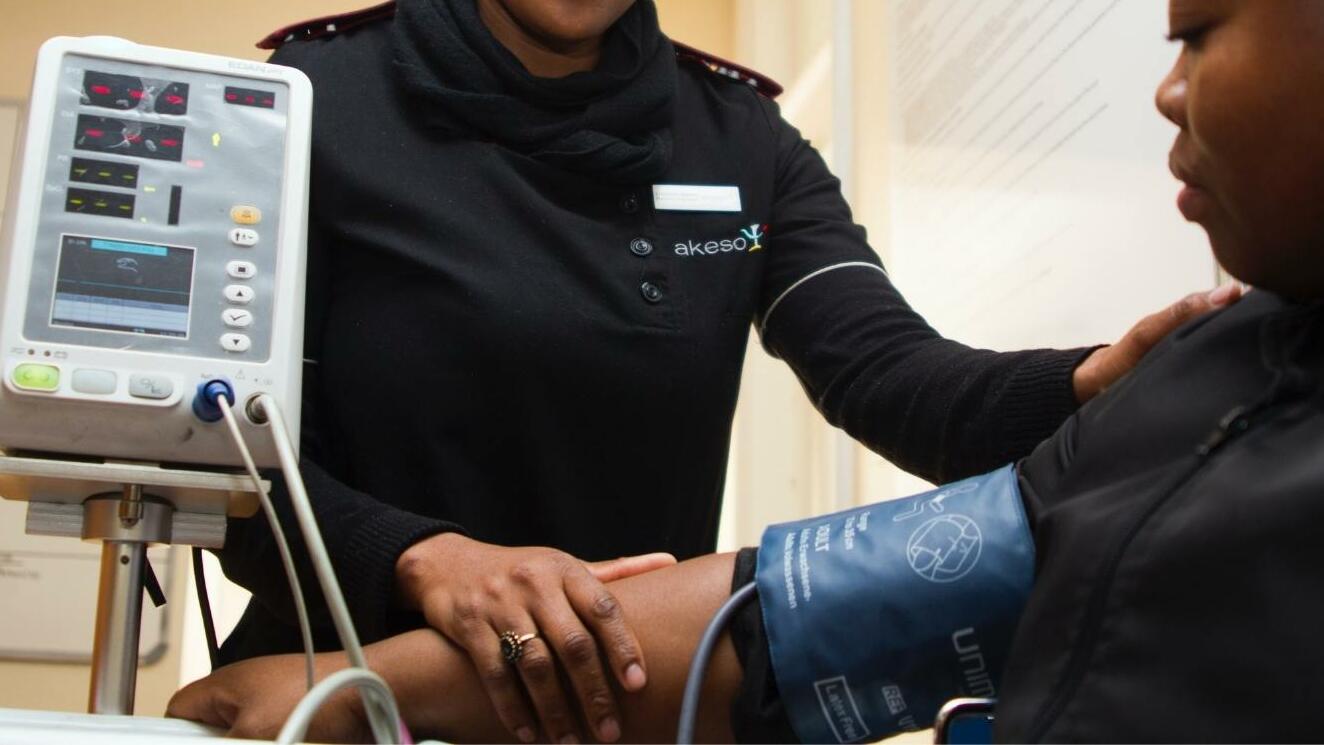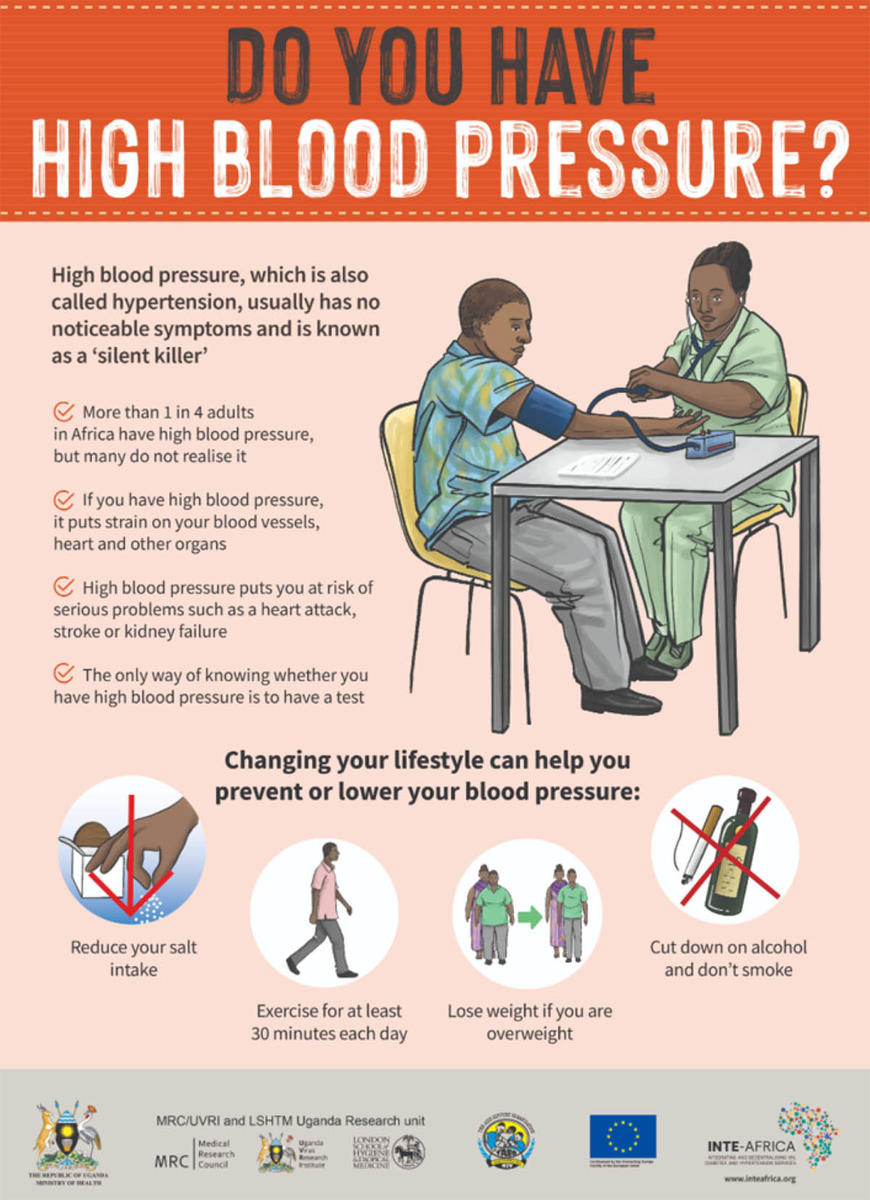
Today on World Hypertension Day it should be emphasized that hypertension is one of the leading causes of mortality worldwide: it is responsible for 12.8% (7.5 million) of annual deaths. In the last thirty years, the number of adults aged 30-79 years with hypertension has nearly doubled to 1.28 billion and the most significant increase has been reported in low-and middle-income countries,4 especially in sub-Saharan Africa5 where it is estimated that between 10 to 20 million people in the region may have hypertension.6 Sub-Saharan Africa, therefore, faces a considerable challenge in reducing the prevalence of hypertension among its population, in line with the Sustainable Development Goals (SDG) targets.
In good health, blood pressure allows blood to circulate throughout the body and reach all organs. We speak of hypertension as “when blood pressure is too high.”1 and, if it remains high over time, the risk of severe health problems that may affect your heart, brain, kidneys, and eyes increases.2 Among the many factors that can increase the risk of hypertension are weight gain and obesity, unhealthy diets, physical inactivity, alcohol intake, and tobacco use.1,2,3 However, there are nonmodifiable risk factors, including genetics and family history, age, race or ethnicity, as well as pre-existing conditions, such as diabetes or kidney disease, which may increase the risk of developing high blood pressure.1,3
Despite the relative ease of diagnosis, less than half of the people with hypertension are aware of their condition. Most become aware of their diagnosis because of health problems from uncontrolled blood pressure, such as a stroke or heart or kidney failure. Although countries recommend systematic screening for hypertension, the evidence on the costs and benefits of these programs is limited. Research is needed to identify practical, low-cost, and easy-to-implement strategies for screening and managing hypertension.
The Research Partnership for the Control of Chronic Diseases in Africa (RESPOND-AFRICA) aims to fill this research gap by engaging researchers, policymakers, health managers and patient groups to identify and evaluate health interventions that improve the quality of healthcare services for people living with hypertension and other common chronic health conditions.
In addition, a recent study conducted by RESPOND-AFRICA highlights the need to expand the capacity of healthcare systems in Sub-Saharan Africa to provide non-communicable disease services and scale up existing chronic care management pathways.7 Integrating care services for chronic conditions in primary healthcare facilities could improve the efficiency of patient care.8

This year’s theme for World Hypertension Day: “Measure Your Blood Pressure Accurately, Control It, Live Longer”, emphasizes the importance of using accurate blood pressure measurement methods and combatting low awareness rates of hypertension.
“Although individuals can measure their own blood pressure using automated devices, an evaluation by a health professional is important for assessment of risk and associated conditions.”1 Guidelines that offer specific instructions for measuring blood pressure are available. However, it is essential that healthcare workers adhere to these instructions. It is reported that a 10% deviation in blood pressure reading could “be enough to hide high blood pressure, start a patient on a drug they don’t really need or lead to incorrect adjustments to medications.”9
Health managers should ensure that team members administering blood pressure measurements are regularly retrained to ensure standardization and adherence to measurement methods. There is also a need for advocacy from healthcare professionals, researchers, and patients to raise awareness for regular and accurate blood pressure measurements.
References
- 1. Hypertension. World Health Organization. 2021.
- 2. About High Blood Pressure. Centres for Disease Control and Prevention. 2021.
- 3. Know Your Risk for High Blood Pressure. Centres for Disease Control and Prevention. 2020.
- 4. More than 700 million people with untreated hypertension. World Health Organization. 2021.
- 5. Jaffar S, Ramaiya K, Karekezi C, Sewankambo N, Jaffar S, Ramaiya K et al. Controlling diabetes and hypertension in sub-Saharan Africa: lessons from HIV programmes. The Lancet. 2021;398(10306):1111-1113.
- 6. Guwatudde D, Nankya-Mutyoba J, Kalyesubula R, Laurence C, Adebamowo C, Ajayi I et al. The burden of hypertension in sub-Saharan Africa: a four-country cross-sectional study. BMC Public Health. 2015;15(1).
- 7. McCombe D, Lim J, Van Hout M, Lazarus J, Bachmann M, Jaffar S et al. Integrating Care for Diabetes and Hypertension with HIV Care in Sub-Saharan Africa: A Scoping Review. International Journal of Integrated Care. 2022;22 (1)(6).
- 8. Birungi J, Kivuyo S, Garrib A, Mugenyi L, Mutungi G, Namakoola I et al. Integrating health services for HIV infection, diabetes and hypertension in sub-Saharan Africa: a cohort study. BMJ Open. 2021;11(11):e053412.
- 9. Tips to measure your blood pressure correctly - Harvard Health. Harvard Health Publishing: Harvard Medical School. 2019.